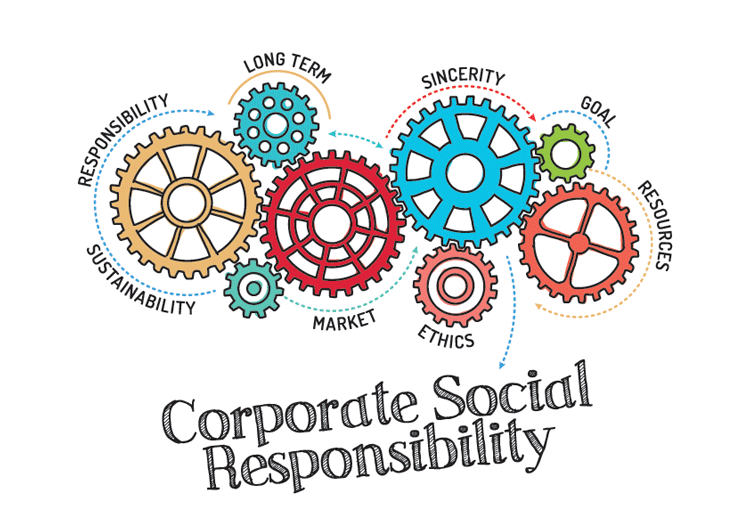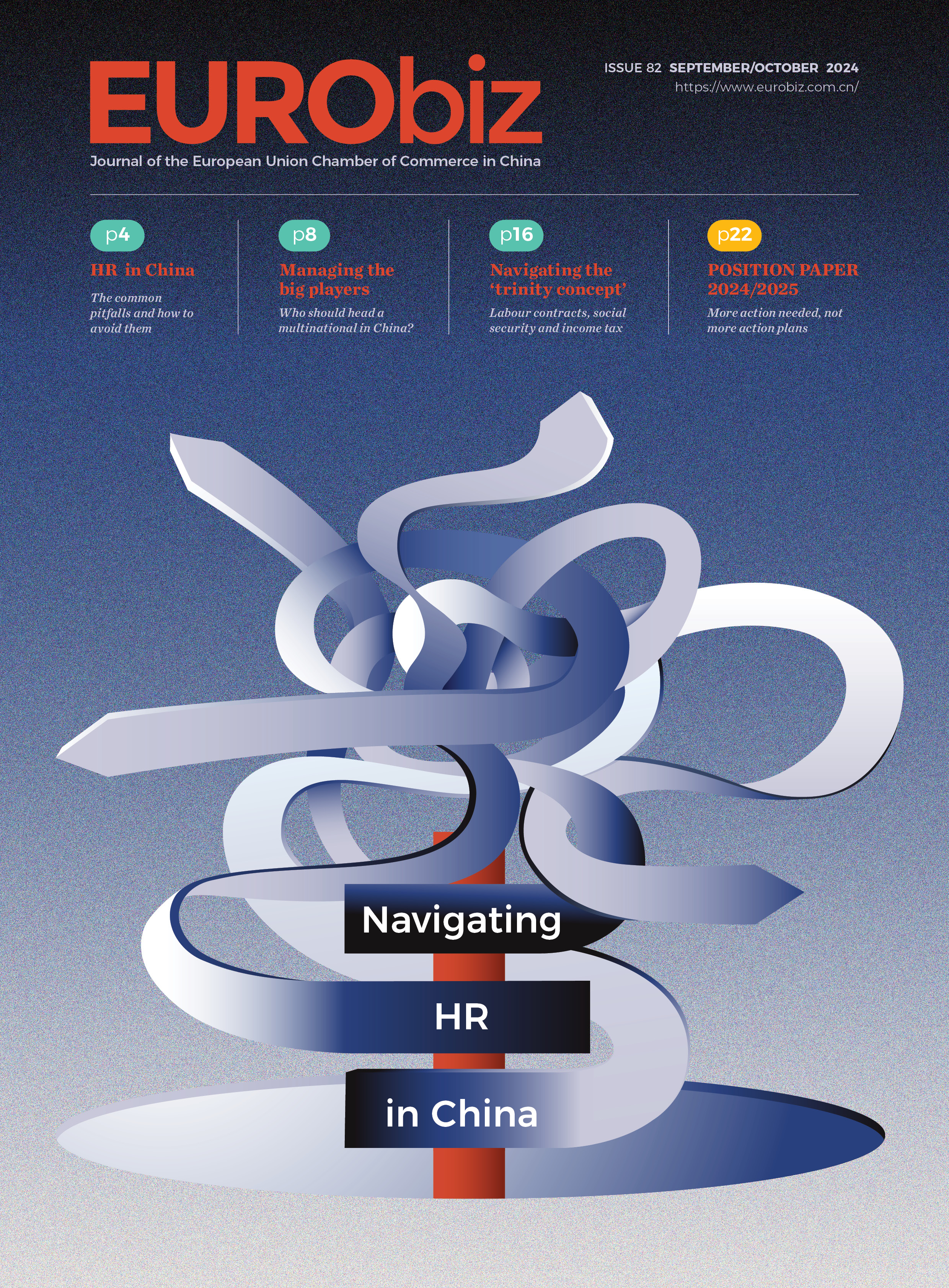Social and environmental compliance in the manufacturing industry
Compliance is a very broad topic and takes on many meanings. It can cover quality systems, environmental friendliness, product safety regulations, social responsibility and payment of taxes, among other things.
David Collins, COO at China Manufacturing Consultants, looks at what it means in a manufacturing context, and explains that adherence to strict standards is one of the most effective ways of guaranteeing compliance.
Most companies get lawyers and accountants to help out with their taxes. Outside contractors are often involved in ISO 9001 certification. Yet the most important issue for a factory is social and environmental compliance. While it is true that both social and environmental compliance can also be audited—and certified—these two topics differ in that they are both a part of each and every minute of what goes on in a factory. So, while these issues clearly demand attention, what are the advantages of assigning them high priority?
First, social responsibility – a very difficult topic. One of the most informative documents to look at in this respect is the Electrical Industry Code of Conduct (EICC). It covers the following categories:
- How to handle labour issues (e.g. a limit on the number of hours worked)
- Personal safety
- Business ethics
- Management systems
- Respect for the environment
While this code has been signed by the biggest electronics companies in the world, along with most of their suppliers, could it be realistically adopted in China, and, if so, at what cost?
A management system is a proven way to make sure your company runs well. The system can be adjusted as new conditions arise and the needs of the business change. A strong management system is the basis of ISO 9001 – if you use that standard to your benefit, rather than as just a piece of paper.
It is of paramount importance to always ‘do what you say and say what you do’ – your employees are continuously looking to you to see consistency in management. Do you treat people equally? Do you work to the company rules for finance and payments? Is there a consistent quality system for employees to follow or work towards? How do you sell and turn that into profit?
Of course the most important component of a management system is performance management. Many studies published in the Harvard Business Review have demonstrated that it helps your business be profitable and keeps employees motivated. When employees know the company’s direction, as well as its strategy, they can work together to make improvements. Without this, everyone goes their own way and chaos ensues – this happens frequently at companies in China, whether they are local or foreign.
Now let’s look at safety. It goes without saying that it should always be taken seriously. A person should go home in the same condition as they came to work, and that should be a fundamental moral issue that any manager can agree with.
If for whatever reason economic justification is needed, you only need look at the cost of poor safety. In China, safety issues can cause an employer to be jailed, to lose their business and to pay for the lifetime of a worker’s wages, among other penalties.[1] In 2014, there were 66,000 industry deaths in China, with a possible fine of USD 800,000 per incident of a safety violation.[2]
The cost of your reputation is very clear in the case of safety violations, and this is even true if you use contract manufacturers – it is your brand that is being built and your brand that takes the hit. Think of the Walmart clothes that were found on the site of a deadly factory fire in Bangladesh in 2012. Since that incident, Walmart has taken a much stronger stance on worker safety, and on undisclosed subcontracting, throughout their supply chain.
Business ethics are of course a problem in China. The old expression that “if a purchasing manager (or senior manager) cannot buy one house every year they are not very good” is sadly still true. But with the Chinese Government’s crackdown on corruption the situation improving.
As pointed out in the European Chamber’s Position Paper 2016/2017, “Compliance programmes have increased significance for business in China, whether multinational, local private or state owned. It has caused companies to look more closely at their own internal compliance procedures and has facilitated the acceptance of compliance protocols by third parties, especially state-owned enterprises (SOEs).”
In particular, clear policy and internal audits of financials will help companies save money. Clear standards for product quality, a bidding process for procurement needs, and having an ERP fed with accurate data, create an atmosphere of ethical behaviour that help companies truly make more money.
To be a good citizen, environmental compliance is critical, and it does not always have to be costly. There are many ways to save money, for example by using recyclable containers with key suppliers, recycling waste from paint shops and other operations, or setting up electricity-saving devices on machines. There are many such examples provided in the article Lean and Green Manufacturing that we had published in EURObiz in February 2016.
Air and water quality compliance can be costly, but if one really looks into how this can relate to employee health—absenteeism rates due to sickness and social insurance costs imposed by the government to pay for a health system that is being stretched by pollution issues—it is easy to see that environmental compliance is in the best interest of companies, and of the country in general. Conservative estimates by the World Bank put the cost of air pollution alone in 2003 at CNY 157 billion in China, due to premature deaths and other issues. Water scarcity due to pollution costs another CNY 147 billion, as much of the water in China is unusable.[3]
The Chinese Government is stepping up its efforts – at a national level it is playing a greater role in enforcing environmental regulations, and it is holding officials accountable at the local level. Again from the Chamber’s Position Paper: “China’s revised Environmental Protection Law, in effect since 1st January, 2015, is the single most important environment-related legislation that has been published to date. It is perceived as the most progressive and stringent piece of legislation in the history of environmental protection in China, with harsher penalties for environmental offences, and provisions for tackling pollution, raising public awareness and protecting whistle-blowers. The law places a higher degree of responsibility and accountability on local governments and sets higher standards for enterprises.”
As pollution becomes a risky political issue, and as greater emphasis is put on compliance, it is in the best interests of companies to get ahead of the issue so they can take advantage of tax credits and lower costs of facilities. Once it is a must, the cost of new facilities for pollution prevention will probably increase greatly.
On the topic of labour, providing staff with good food and safe working conditions helps to keep them working for you. In many factories, a turnover rate of 25 per cent or higher means the activities of recruiting and training are quite expensive. Basic compliance should therefore be an important objective.
What is really difficult in China is labour law compliance with respect to working hours. Companies that work very hard to comply with this standard get hurt more often than not. Most production operators think, if I cannot work here for 6-7 days a week for 10-12 hours, and get the corresponding salary, I will go to a company that will give me that.
As we all know, operators and, more generally, the people closest to the processes, are always the best people to listen to for ideas on how to improve operations. Jack Welch, the long-time CEO of General Electric, always credited the success of the company during his tenure to open communication and listening to the people who did the actual work.
How to solve the labour-hours issue in China, however, is still a major challenge, and there is not one good solution to suit all cases.
David Collins is Chief Operations Officer at China Manufacturing Consultants (CMC). David has more than 30 years of manufacturing experience in the automotive, computer, aerospace, chemical and furniture industries. He was a senior manager of several General Motors and Chrysler car plants, as well a general manager and site director for Foxconn. He helped set up five factories from scratch in three different countries. David is a firm believer that good manufacturing practices improve performance on cost, quality, safety and environmental impact simultaneously. He may be contacted at david.collins@cmc-consultants.com.
[1] Elsinga, Steven, China Briefing, Dezan, Shira & Associates, 9th June 2015, viewed 12th May, 2017, <http://www.china-briefing.com/news/2015/06/09/employee-china-gets-injured.html>
[2] An, Baijie, Workplace death toll ‘too high’, China Daily, updated 11th March, 2015, viewed 12th May, 2017, <http://www.chinadaily.com.cn/china/2015twosession/2015-03/11/content_19776066.htm
[3] Cost of pollution in China: economic estimates of physical damages, World Bank, 2007, <http://documents.worldbank.org/curated/en/782171468027560055/Cost-of-pollution-in-China-economic-estimates-of-physical-damages>




Recent Comments